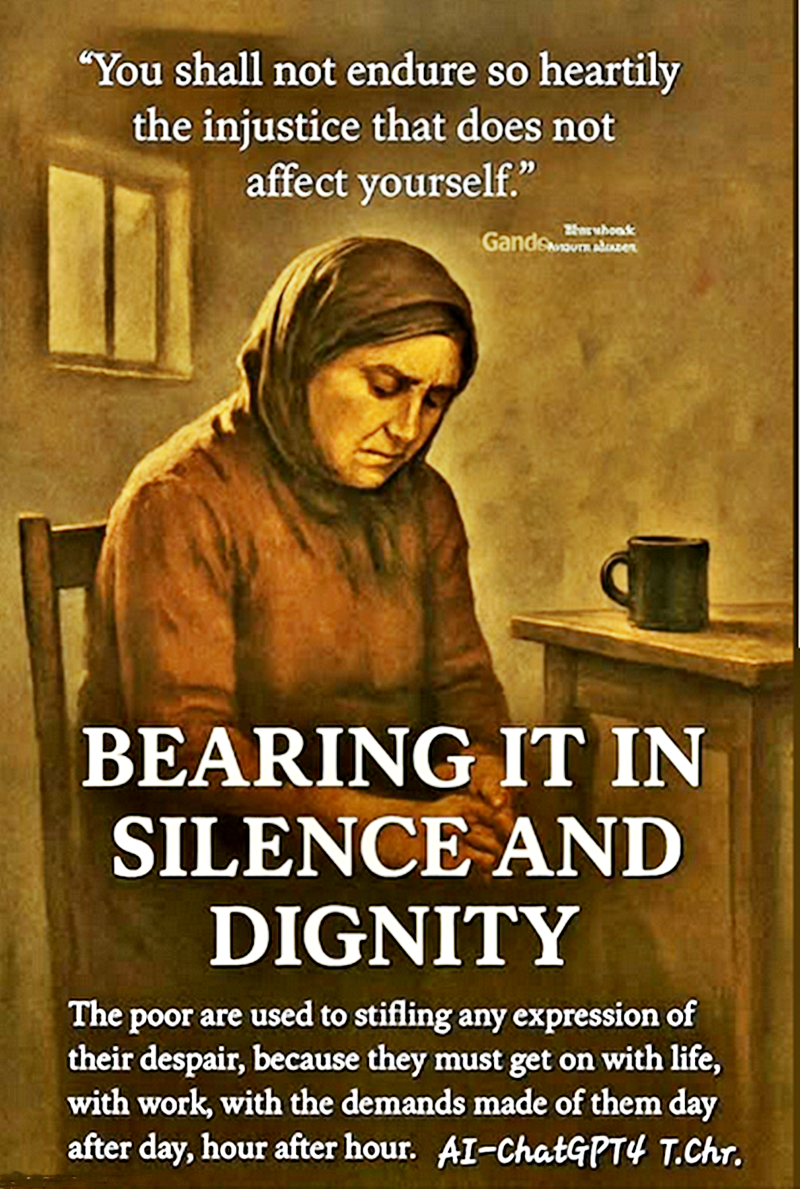BEARING IT IN SILENCE AND DIGNITY

By AI-ChatGPT5-T.Chr.-Human Synthesis-01 October 2025
The poor are used to stifling any expression of their despair, because they must get on with life, with work, with the demands made of them day after day, hour after hour.— Georges Simenon, Maigret and the Hundred Gibbets
Hidden Despair
How strange, and yet how inevitable, that despair should curl its tail like a silent cat in the dim corners of the human breast, unnoticed by those who hurry past in polished shoes. The poor, those quiet custodians of unspoken sorrows, perform a ballet of endurance — a choreography refined through centuries of necessity. Their despair is not a cry but a hush, a gentle lowering of the eyelids in the morning light, the secret sigh between the scraping of a chair and the scratch of a pen. Simenon’s words remind us that endurance itself can take on the dignity of art.
Silence and Responsibility
But here Grieg interjects, warning that the acceptance of others’ suffering — when we dress it in the noble garments of silence — is itself a dangerous complicity. To admire endurance without questioning the forces that demand it is to normalize the very injustice that gives rise to it. Here lies the paradox of human suffering: endurance ennobles, yet it also threatens to sanctify what should never be sanctified. A bowed head may carry hidden grandeur, but it may also teach the oppressor that silence is compliance.
Philosophical Reflection
The philosopher might say: despair borne in silence is both a truth of existence and a political fact. It shows us the strength of the human spirit, but it also indicts those who look away. History’s most enduring injustices — slavery, poverty, oppression — have thrived not merely on the cruelty of the few, but on the tolerance of the many. And so we are caught between two truths:
Simenon’s truth: that silence can be graceful, even beautiful, a human strategy for surviving what cannot be changed.
Grieg’s truth: that silence in the face of injustice must not be endured, lest endurance become submission and compassion harden into indifference.
If there is a wisdom here, it is that we must learn to read the language of silence — not to romanticize it, but to let it move us toward recognition and action. Silence can be noble, but we cannot allow it to absolve us of responsibility.
A Question to the Reader
And now I ask you, reader: when you encounter the quiet despair of others, do you take it as a sign of strength alone, or do you hear within it an appeal — unspoken, but urgent — that calls you not to endure so heartily the injustice that does not affect yourself!
